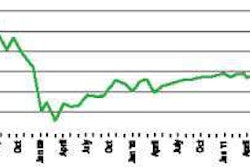The battle over EOBRs

“Companies can and do use technology to harass drivers by interrupting rest periods. This decision not only dealt with the issue of harassment, but the court also made it clear there were other aspects of the rule they believed problematic … [Carriers] can contact the driver and put on pressure to get back on the road to get the most of his or her on-duty time, regardless of how fatigued a driver may be. Such a mandate would be a step backward in the effort toward highway safety and is an overly burdensome regulation that simply runs up costs for the majority of trucking, which is small business.”
– Owner-Operator Independent Drivers Association
“ATA supports FMCSA’s efforts to mandate the adoption and use of electronic logging devices for hours-of-service compliance. FMCSA’s research shows that compliance with the current hours-of-service rules is strongly associated with reduced crash risk. Of course, electronic logging devices are important tools for improving hours-of-service compliance. We hope FMCSA will work quickly to address the court’s decision and the important device design and performance specifications being evaluated by the administrator’s Motor Carrier Safety Advisory Committee. As demonstrated by the record improvement in the industry’s safety record since the framework for the current hours-of-service rules went into effect and the agency’s own compliance and crash data, increasing compliance with the rules is vital.” – American Trucking Associations
So what do you think?
Tell us at
ccjdigital.com/polls
“The evidence clearly shows that the real problem isn’t truck drivers who rest, but truck drivers who don’t rest enough.
The Federal Motor Carrier Safety Administration’s new CSA safety rating program revealed recently that the most common truck driver infraction is for hours-of-service violations. Those violations are truck drivers who are exceeding their hours behind the wheel. Clearly, filling out a paper logbook allows a truck driver to easily manipulate the system and violate the law. EOBRs will force truck drivers to take their proper rest, not exceed their hours driving, and that will make our highways safer for everyone.”
– Alliance for Driver Safety and Security
“We feel that any company should have the right to institute EOBRs as a company policy for its drivers, but to impose [FMCSA’s] thinking on all companies and drivers is simply not justifiable. Beyond the harassment issue that was sufficient to strike down the use of EOBRs for ‘bad actors,’ mandated EOBRs represent a burdensome and unjustified cost for thousands of small carriers who have no need for them, and it implies a ‘guilty until proven innocent’ precept for all over-the-road drivers. There has been a decade-long beta test of EOBRs by one particular large carrier, and their safety track record over that decade is abysmal when you measure safety, i.e., crashes, injuries and fatalities. Their compliance ratings according to CSA criteria are pristine. I don’t see how anyone could look at this ‘beta test’ and argue that mandated EOBRs will improve safety.”
– National Association of Small Trucking Companies
“I would be happy if it was going away permanently.
I will not have a computer tell me when it is safe to drive. These safety organizations should be careful for what they wish for. There will be more trucks with less experienced drivers and probably more accidents. Some of us with 2 million-plus miles will leave the over-the-road sector because of the loss in revenue/home time.”
– James M., company driver











